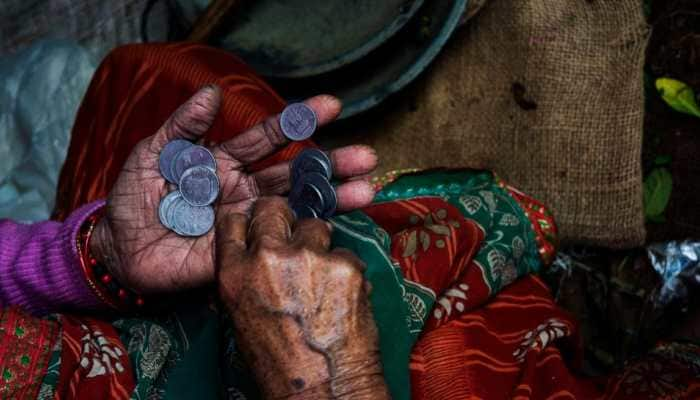Gorakhpur tragedy: No hygiene, patients left at the mercy of untrained doctors at BRD hospital, says Central team
A three-member panel, formed by Centre to probe the deaths of over 70 children at the BRD Medical College in Gorakhpur has indicated serious irregularities. The team comprised of Dr Harish Chellani, a paediatrician at Delhi's Safdarjung Hospital, Dr NK Agarwal, Deputy Commissioner, Immunisation, Health Ministry, and Dr Sushma Nangya of Lady Hardinge College mentioned that proper hygiene norms are not being maintained at the hospital.
Trending Photos
) Picture Courtesy: PTI
Picture Courtesy: PTI New Delhi: A three-member panel, formed by Centre to probe the deaths of over 70 children at the BRD Medical College in Gorakhpur has indicated serious irregularities. The team comprised of Dr Harish Chellani, a paediatrician at Delhi's Safdarjung Hospital, Dr NK Agarwal, Deputy Commissioner, Immunisation, Health Ministry, and Dr Sushma Nangya of Lady Hardinge College mentioned that proper hygiene norms are not being maintained at the hospital.
“Currently, there is suboptimal care with regard to asepsis routines (handwashing, use of disinfectants, cleaning of bassinets after discharge or death of neonate), gross overuse of antibiotics and intravenous fluid therapy as well as poor nutritional support in form of enteral feeding… Deaths early after admission (within 12 hours) were just 11%, with 25% within 24 hours of admission and another 25-35% deaths occurring in the next 24 hours. This indicates that nearly 50% deaths are occurring within 48 hours of admission, implying both suboptimal stabilisation at peripheral units and poor care after admission in the BRD Medical College,” leading daily The Indian Express quoted the report.
The panel also mentioned that the hospital has an acute shortage of trained doctors. Newborns are being put in danger as the hospital has allowed untrained nurses to look over them. As per the report out of 31 only three nurses working in the neonatal department are trained in Facility Based Newborn Care (FNBC).
“The overall strength of faculty and junior residents (pursuing MD) including non-academic JR (junior residents) seems reasonable. However, the number of senior residents (post-MD residents) is grossly inadequate being 4 against 12 vacancies and they need to be on the floor to provide 24/7 cover and not just during routine hours. It is these post-MD senior residents who take decisive actions as regards patient care and make a significant difference to the quality of care provided to patients," the report further stated.
“Deaths early after admission (within 12 hours) were just 11%, with 25% within 24 hours of admission and another 25-35% deaths occurring in the next 24 hours. This indicates that nearly 50% deaths are occurring within 48 hours of admission, implying both suboptimal stabilisation at peripheral units and poor care after admission in the BRD Medical College,” the panel said.
Meanwhile, the Indian Medical Association (IMA) yesterday said that its fact-finding team had found oxygen supply was interrupted for a short while on the night of August 10 at Baba Raghav Das (BRD) Medical College in Gorakhpur, leading to more deaths. The IMA, which had called a suo motu inquiry into the deaths of over 70 children, said its team found out that the liquid oxygen supplier of the hospital had not been paid his dues since the last five months and cleanliness of the hospital was also unsatisfactory.
"Presence of dogs and rats in hospitals is not acceptable by any standards in the hospital premises. The hospital was handling these cases and other critically ill patients much more than its capacity. There is no facility in Gorakhpur and nearby districts to manage encephalitis," said the report by a three-member IMA team.
It also found that no alert was issued by the hospital administration regarding shortage of oxygen, addding that the treating doctors should have been alerted seven days before that a fresh oxygen supply would not be received. According to the IMA, there are many other discrepancies in the health system of Uttar Pradesh such as ICUs in 10 districts of eastern Uttar Pradesh do not function because of lack of staff and other resources.
(With inputs from agencies)
Stay informed on all the latest news, real-time breaking news updates, and follow all the important headlines in india news and world News on Zee News.
Live Tv







)
)
)
)
)
)
)
)
)
)
